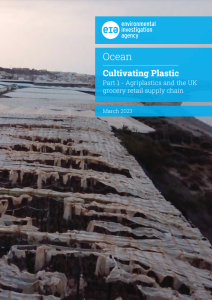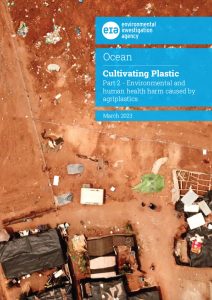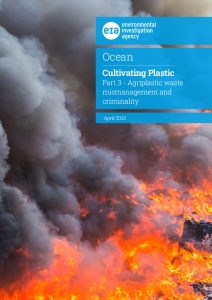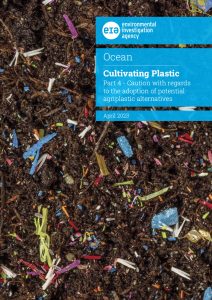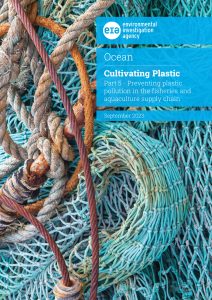Cultivating Plastics series
Cultivating Plastic is a series of five connected reports on the use and harmful impacts of plastics used in agriculture, commonly referred to ‘agriplastics’.
Between them, the five publications address the issues of agriplastics and supermarket supply chains, the environmental and human health harm from agriplastic use, waste management and related criminality and the important issues that need to be addressed to allow alternative solutions to be implemented widely.
Agriplastics and the UK grocery retail supply chain
The use of plastics in agriculture (commonly known as ‘agriplastics’) only accounts for 3.5 per cent of annual global plastic usage. However, their design, use and the pollution they cause are devastating and extend far beyond farmland
Their use can create essential short-term abundance, but are also creating mid- to long-term scarcity of the very same produce. Disentangling the solutions to all of this will require multiple measures and approaches.
Environmental and human health harm caused by agriplastics
Agriplastics are used widely in agriculture to grow and store produce, but are also responsible for widespread pollution, from their manufacture and use to mismanagement at the end of their useful life.
Another critical factor of agriplastics pollution is the impact on human health, especially that of workers in close contact with agriplastics at their end-of-life.
Agriplastic waste mismanagement and criminality
British farms produce 135,500 tonnes of soil-contaminated agricultural plastic waste each year – roughly equivalent in weight to 900 adult blue whales.
But according to the Chartered Institution of Wastes Management, it is estimated that only 20-30 per cent is reprocessed into new products while the rest is disposed of, including illegal burning, burying, dumping or export (which often entails illegal plastic waste exports ultimately being burnt or dumped abroad).
Caution on adoption of potential agriplastic alternatives
The uptake of potential alternatives to agriplastic is not without environmental or human health issues.
As awareness of the issues brought about by agriplastic use are growing, so too is the search for alternative products or methods.
This fourth and final Cultivating Plastic report consider how solutions are not without their own environmental and human health impacts and argues that these issues must be addressed before widespread uptake occurs.
Preventing plastic pollution in the fisheries and aquaculture supply chain
Plastics are ubiquitous in wild-capture fisheries and aquaculture, polluting land and sea, causing navigational hazards, blighting the coastal landscape and impacting communities and tourism when it washes ashore while often continuing to entangle and kill marine species as well as contaminating seafood for human consumption.
The UK grocery retail sector has an important role in combatting this plastic pollution and EIA has found that UK supermarkets have increasingly undertaken a variety of measures in their sourcing policies – but there is still much more they can and should do to eliminate plastic pollution and mismanagement of gear from seafood and aquaculture supply chains.
